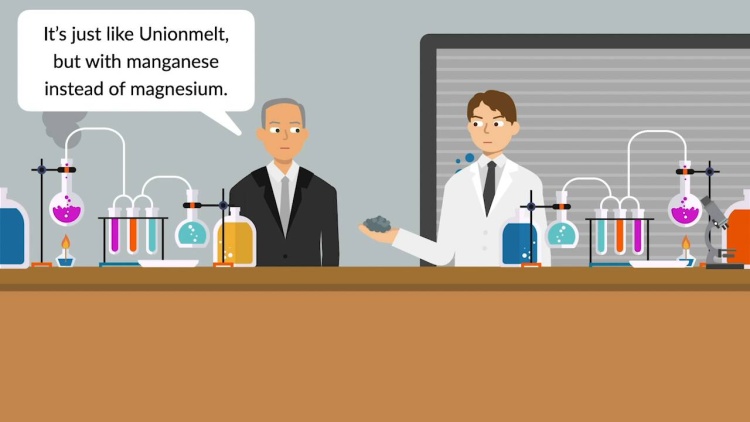Graver Tank v. Linde Air Products Co.
United States Supreme Court
339 U.S. 605 (1950)
- Written by Angela Patrick, JD
Facts
Linde Air Products Co. (Linde) (plaintiff) owned a patent for Unionmelt Grade 20 (Unionmelt), a flux composition used in welding. The patent described Unionmelt as a combination of alkaline-earth-metal silicates and calcium. One Unionmelt ingredient was magnesium silicate, an alkaline earth metal. Graver Tank (Graver) (defendant) made a competing product called Lincolnweld 660 (Lincolnweld), which was identical to Unionmelt except that it substituted for Unionmelt’s magnesium silicate with manganese, which was not an alkaline earth metal. The two products were made using similar processes and used for the same applications. Linde sued Graver for patent infringement. The district court heard expert testimony and watched demonstrations. Prior-art disclosures recognized that manganese was a substitute ingredient in welding fluxes. One chemist testified that for purposes of the Unionmelt patent, manganese could be considered an alkaline earth metal. There was no evidence that Graver had developed Lincolnweld through independent research. The court found that Lincolnweld did not literally infringe on the Unionmelt patent. However, the court also found that (1) manganese could be used as a substitute for magnesium silicate and (2) Lincolnweld was substantially identical to Unionmelt. Considering everything, the court held that Graver had infringed on Linde’s patent. The United States Court of Appeals for the Seventh Circuit affirmed. The United States Supreme Court granted certiorari.
Rule of Law
Issue
Holding and Reasoning (Jackson, J.)
Dissent (Black, J.)
Dissent (Douglas, J.)
What to do next…
Here's why 907,000 law students have relied on our case briefs:
- Written by law professors and practitioners, not other law students. 47,100 briefs, keyed to 996 casebooks. Top-notch customer support.
- The right amount of information, includes the facts, issues, rule of law, holding and reasoning, and any concurrences and dissents.
- Access in your classes, works on your mobile and tablet. Massive library of related video lessons and high quality multiple-choice questions.
- Easy to use, uniform format for every case brief. Written in plain English, not in legalese. Our briefs summarize and simplify; they don’t just repeat the court’s language.





